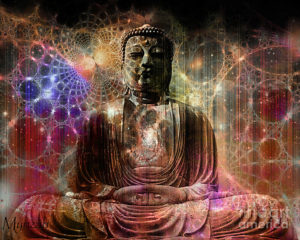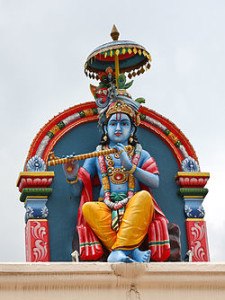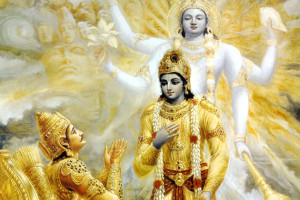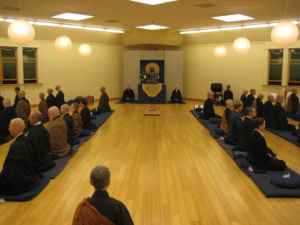America is one of the only countries on planet Earth that is, in its ideal sense, not defined by ethnic identity. Ethnicity has, of course, played a huge role in our formation as a nation, and still unfortunately heavily influences us today. Yet I am talking about America in an ideal sense. Germany is primarily composed of the German ethnicity, France is the home of the French, Mexico has a majority of Mexicans, etc. What is a America, however? In its ideal sense, it is a nation of people who share a set of governmental values, and also a group of people who are seeking to create their own identity. To be an American means to lack an ethnic root that other nations take for granted. This fact has had interesting psychological effects on us and, in my opinion, has generally produced a restlessness that, for better or worse, has helped produce one of the most domineering and massive economies to ever exist.
Our diminishment of ethnic identity has caused us to seek identity elsewhere, and nowhere is this misplaced identity more apparent than in the way we relate to work. From birth, we hear the word “do” repeated like a mantra that endlessly jabs our souls like a searing brand. From almost the moment we leave the womb, we are asked, “What do you want DO with your life?” instead of “How do you want to BE?” As adults, when we meet people, the first thing we usually ask after asking someone’s name is, “What do you do?” I do, I do, I do… When we describe ourselves, our professional identity usually is preeminent: I am a doctor. I am a construction worker. I am a teacher. I am, I am, I am…
In recent years, God has been working to reprogram my brain from this repressive and capitalistic way of thinking about identity. What I do is indeed important because, in a society, we must all contribute, and I have a natural desire to help people with my work. Yet I refuse to think about myself in terms of my contribution to the economy. Factoring out my career, what do I do? Ultimately, I BE. I live inside of God’s Mind in a state of indescribable Union with the ever-blissful Lord of the Universe. And who am I, in a more personal, dualistic sense? I am a child of the Most High God, unconditionally loved with an depth that couldn’t be described, even if all the trees of this world were converted into a single scroll filled with love sonnets from the timeless Muse. Even if I achieve more than any human being has ever achieved, God will not love me one iota more or less. What I do affects my own karma and life circumstances, but my identity is not based upon my work, but upon God’s Love that is entirely unaffected by it. Blessed and forever praised is the One who has revealed this to me!
Continue reading →

 – Krishna was an earhtly prince who did many practical things to help the people of his time, but was always established in Self-Realization through yoga meditation.
– Krishna was an earhtly prince who did many practical things to help the people of his time, but was always established in Self-Realization through yoga meditation. – Krishna revealing to Arjuna the timeless Way of the Yogis.
– Krishna revealing to Arjuna the timeless Way of the Yogis. – The meditation hall at Great Vow Zen Monastery, where I have lived for 9 months and have participated in 10 sesshins. I have also done one 10 day Vipassana retreat (as taught by SN Goenka), which I highly recommend.
– The meditation hall at Great Vow Zen Monastery, where I have lived for 9 months and have participated in 10 sesshins. I have also done one 10 day Vipassana retreat (as taught by SN Goenka), which I highly recommend.
